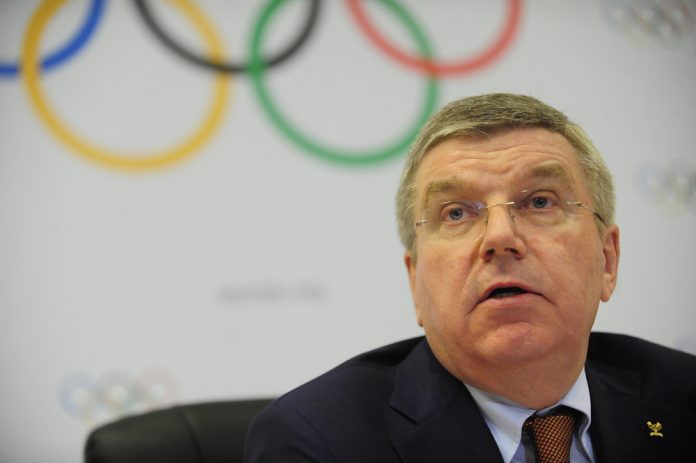International Olympic Committee (IOC) President, Thomas Bach, has postponed his visit to the site of the delayed 2020 Tokyo Olympic Games after Japan opted to extend the country’s state of emergency due to the COVID-19 pandemic.
The visit, which was scheduled for 17 and 19 May, will be rearranged ‘as soon as possible’, according to the IOC, although reports emerging from Japan have suggested the meeting will be moved to June.
Japan’s state of emergency was set to run for two weeks and end on 11 May. However, it was extended on Friday until 31 May as coronavirus cases continue to surge ahead of the Olympic Games, which are set to take place from 23 July to 8 August.
Most recently, Japanese Prime Minister, Yoshihide Suga, has come under criticism for ‘prioritising’ the Olympics over public health. However, the 72-year-old insisted that this was not the case.
Speaking to the parliamentary committee on Monday, Suga said: “I’ve never put the Olympics first…My priority has been to protect the lives and health of the Japanese population. We must first prevent the spread of the virus.”
Polls conducted by local news outlets have also demonstrated a strong resistance to the Olympics being held in the Japanese capital this year.
One survey by newspaper Yomiuri Shimbun found that 59% of the Japanese public wanted the Summer Games to be cancelled, whilst TBS News’ poll disclosed that 65% of the public hoped the event would be cancelled or postponed.
Last week, the IOC struck a deal with American pharmaceutical corporation Pfizer to supply athletes travelling to Tokyo with the COVID-19 vaccine and prevent the spread of the virus, with Japan, along with Great Britain, being two of the only nations not to prioritise competitors for inoculations.
Nonetheless, a handful of high-profile athletes have come forward and voiced concerns about the Olympics, including Japanese tennis stars Naomi Osaka and Kei Nishikori.
Osaka, who has already received her vaccine, reaffirmed that discussions should remain at the fore as the idea of the Games going ahead is ‘making people very uncomfortable’, when speaking at a news conference prior to the Italian Open.
“For me, I feel like if it’s putting people at risk then it definitely should be a discussion, which I think it is as of right now,” she said. “At the end of the day I’m just an athlete, and there is a whole pandemic going on. Of course I want the Olympics to happen, but I think there’s so much important stuff going on, especially the past year.”
Meanwhile, a recent study conducted by AdColony found that just under half of fans watching the Olympic Games this year will tune in via mobile devices.
The mobile advertising platform uncovered that 46% of respondents said they would watch the Games on mobile or smartphone devices, with many users multitasking whilst watching the showpiece sporting event.
Furthermore, the study added that 47% would be texting whilst watching the event, a further 47% would spend time browsing social media apps and 37% would be looking up Olympics content, offering an insight into how brands can connect with fans and audiences.



























